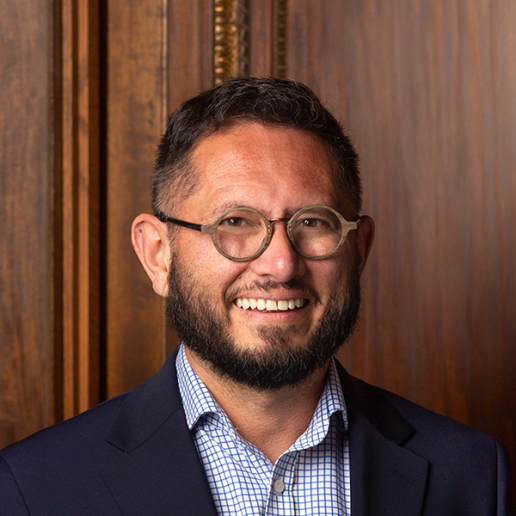Placement: University of California, San Francisco
Mentor: Margot Kushel, M.D., Professor of Medicine and Division Chief, Division of Vulnerable Populations, Zuckerberg San Francisco General Hospital and Trauma Center; Director of the Center for Vulnerable Populations and UCSF Benioff Homelessness and Housing Initiative, University of California, San Francisco
Co-mentor: Urmimala Sarkar, M.D., M.P.H., Professor of Medicine, Division of General Internal Medicine; Associate Chair for Faculty Experience, Department of Medicine; Associate Director, Center for Vulnerable Populations, University of California, San Francisco
Project: Developing an Equity-Focused Framework to Mitigate Against the Digital Exclusion of People Experiencing Homelessness
Joseph Tay Wee Teck (Joe Tay), MB BCh, BAO, DCH, MRCGP, M.Sc., is a 2023–24 U.K. Harkness Fellow in Health Care Policy and Practice. He has been a general practitioner working with marginalized groups and populations for more than 15 years. He specializes in addiction medicine and is the clinical services director for Forward Leeds, the second-largest integrated addiction care service in England. He is also an honorary research fellow at St. Andrews University School of Medicine, where he cofounded the digitAS project, which explores the role of digital health interventions in addiction services. Teck’s key areas of research and policy interest include the reproduction of inequalities in digital health interventions, implementation science, telemedicine delivered addiction care, and the use complex and critical systems approaches in addressing wicked problems. He is part of the policy and practice interest group of the International Society of Addiction Medicine and has been an advisor in the Scottish policy context on quality standards for the treatment of opioid use disorder and other substance use–related issues. Teck is a Ph.D. candidate at the University of St. Andrews, earned an M.Sc. in drug and alcohol studies from the University of Glasgow, and earned his medical degree at NUI Galway.
Project Overview: Digital health interventions (DHI), which are technological tools used to support patients, providers, health systems, and resource and data manager needs, are increasingly at the heart of strategies to improve population health. In both the United States and the United Kingdom there is a clear mandate to reduce health inequalities and address the wider social determinants of health. Unfortunately, for those already at the margins of society, such as people experiencing homelessness, there is a significant risk that wide adoption of DHI may further exclude them and worsen health inequalities.
People experiencing homelessness suffer from multiple forms of exclusion, such as structural inequalities resulting in deep-rooted mistrust of institutions, systematic exclusion and power and resource imbalances (e.g., through data absenteeism), and competing priorities (e.g., meeting immediate survival needs). How then do we ensure that expanded use of DHI does not push already excluded populations further into the margins and beyond?
This work aims to canvas a broad range of stakeholders to develop an equity-focused, consensus-based framework to evaluate DHI intended for people experiencing homelessness. It is hoped that building in processes which anticipate and mitigate against digital exclusion of already-marginalized groups will result in interventions which improve health equity throughout society.
